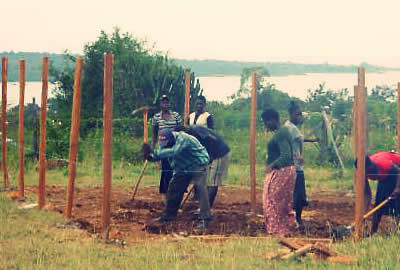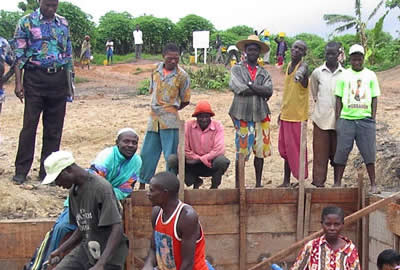-
DISASTER RISK REDUCTION IN EMERGENCIES
You will learn the concept and practice of reducing disaster risks through systematically analyzing and managing the causal factors of disasters. For example, the course examines reducing exposure to hazards, lessening vulnerability of people and property, wisely managing land and the environment, or improving preparedness for adverse events.
More Info
-
EFFECTIVE LEADERSHIP IN HUMANITARIAN PROGRAMMES
Management strategies, Leading and delivering programmes, Leadership in humanitarian settings, Decision-making, Negotiation skills...
More Info
-
Essentials in Humanitarian Practice
Essentials of Humanitarian Practice will give participants an insight into life working in the field whilst increasing understanding of the characteristics of natural disasters, conflict induced emergencies and the requirements for an effective humanitarian response.
More Info
-
INTRODUCTION TO HYGIENE PROMOTION IN EMERGENCIES
The course explores the fundamentals of hygiene promotion in emergency environments. You will look at methods of hygiene behavior change, community engagement and facilitation, and how to ensure that affected populations are fully integrated in the WASH responses that your organisation implements.
More Info
-
SHELTER ESSENTIALS
This integrated course defines humanitarian response within the framework of an understanding of development, with vulnerability and disaster risk reduction as an integral part of development.
More Info
-
PERSONAL SECURITY FOR HUMANITARIANS
This is an intensive, dynamic course where you will discuss, learn and apply approaches and measures to improve your personal security when living and working in insecure environments. Personal Security for Humanitarians has been designed specifically from an NGO perspective to provide the most relevant and challenging training for NGO workers.
More Info
-
INTRODUCTION TO HUMANITARIAN & RELIEF WORK
The basic idea of humanitarian assistance—delivering medicine, food, and other supplies to relieve suffering and save lives—appears to be a simple one. Yet, there is a serious debate between different humanitarian organizations, official donors, governments, and the United Nations regarding the operational approach to the delivery of aid that ought to be adopted.
More Info
-
MANAGING TEAMS IN HUMANITARIAN RESPONSE
People are the key to any effective humanitarian response. Managing people can be difficult at the best of times, but during the chaos and stress of a complex humanitarian emergency, the ability to manage people is crucial for the success of any programme.
More Info
MANAGING PEOPLE AND PROJECTS IN EMERGENCIES
Effective responses to complex emergencies require exceptional management skills. Managing people and projects can be difficult at the best of times, but being able to deliver quality outputs on time and under pressure is even more crucial during the chaos and stress of a complex emergency.
More InfoCOMMUNITY BASED DISASTER RISK MANAGEMENT
The field practitioners will learn practical tools for designing and implementation of programmes for reducing disaster risks and vulnerability and building of community capacity to promote a culture of safety.
More Info










